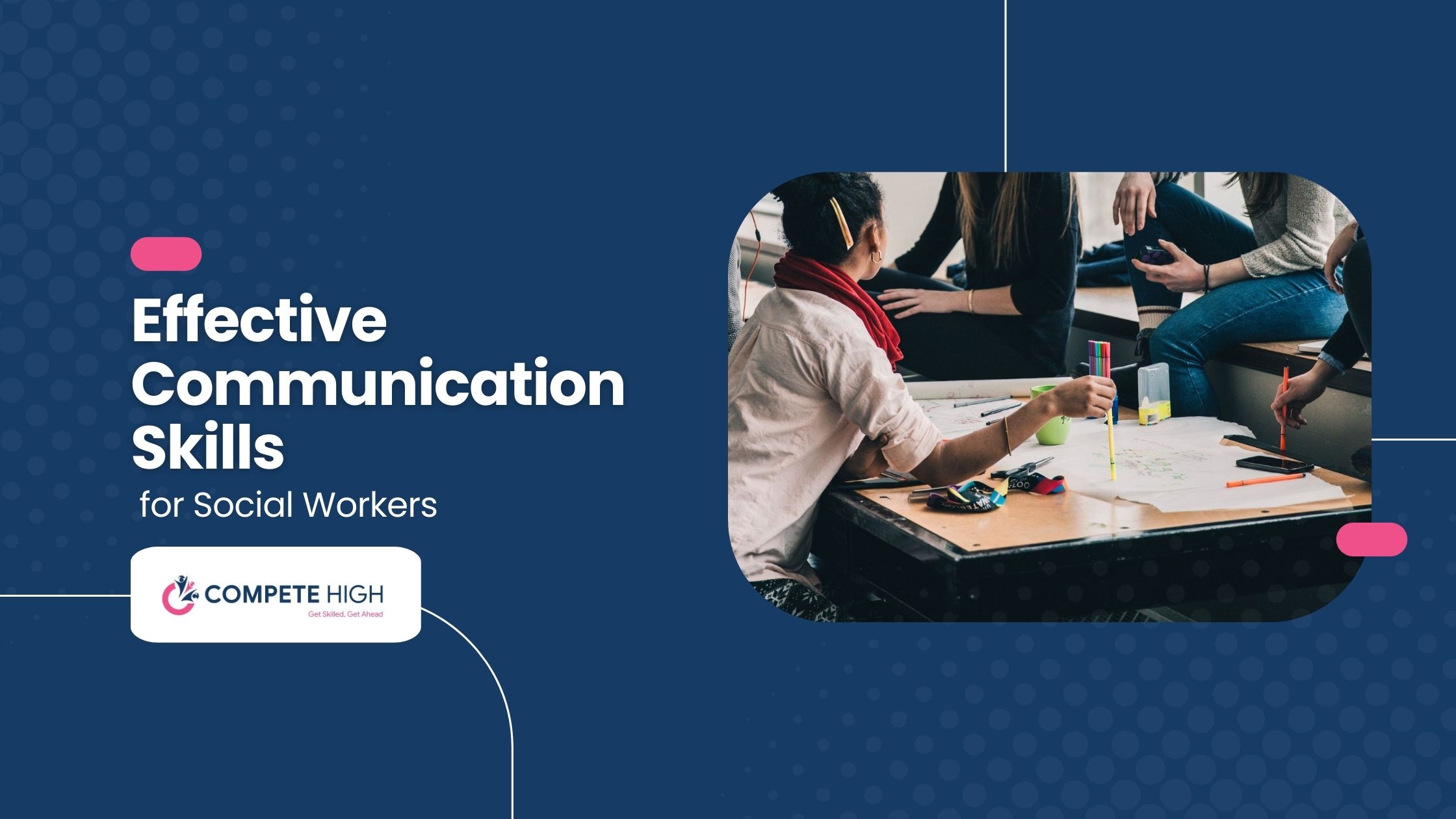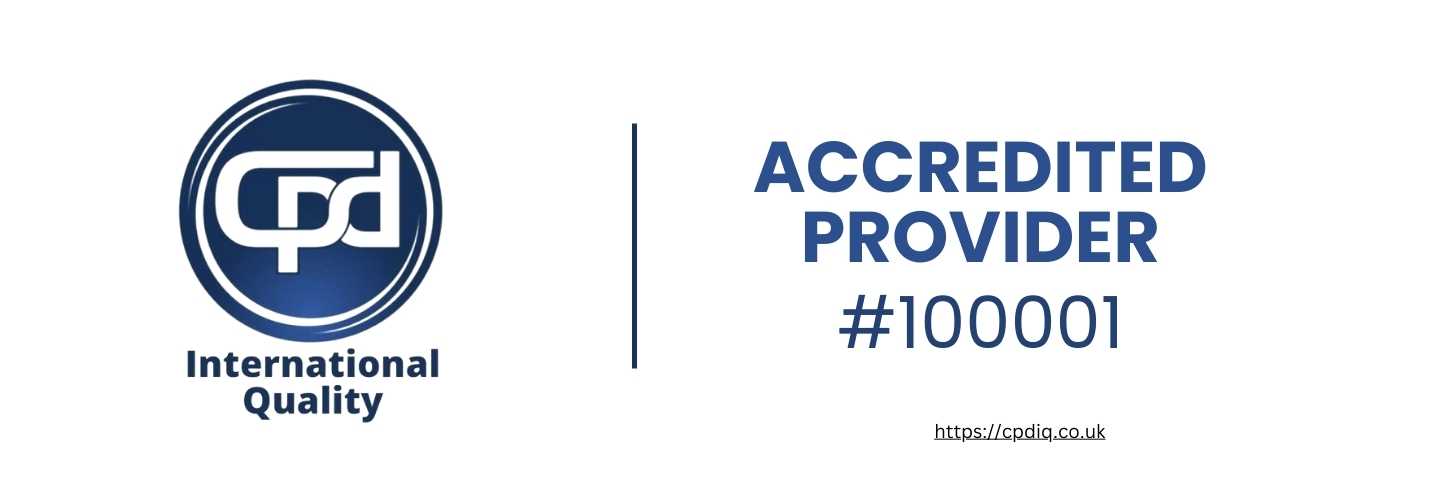
There should be no doubt about the importance of effective communication skills for social workers when working effectively with clients to achieve positive outcomes. This blog aims to provide an overview of the key to effective communication skills that social workers should have, as well as strategies for improving their communication skills.
Understanding Communication in Social Work
Definition and Importance
Social Work Communication: Effective communication skills for social worker are referred to as verbal or communication skills. Those are the skills that address the ability to transmit information, to receive information, and to make relationships. Those are skills that we think of as verbal skills or communication skills. At its core is the ability to build that relationship of trust, to provide support, and to enable a positive outcome for the client.
Effective Communication: Effective communication skills enhance client relationships by building trust and rapport, deepening client-worker understanding, ensuring that social workers can accurately assess needs and provide appropriate interventions, and advocating on behalf of clients. Conversely, poor communication can result in misunderstandings, decreases in client satisfaction, harm to clients, and negative client outcomes and terminations.
Types of Effective Communication Skills in Social Work
Verbal Communication: It may seem obvious, but verbal effective communication skills are contained within the words spoken and how they are conveyed. Clarity could demonstrate that messages are clear and easy to comprehend. Empathy could be about the ability of social workers to connect with clients and to have an understanding of their personal experiences and feelings, thereby enhancing the client-worker relationship. Finally, assertiveness, which in ambulance speak is especially relevant to practicing good, clear and effective communication skills, could evoke the purpose of setting boundaries concerning clients’ needs.
Non-verbal Communication: What makes non-verbal communication important is that we communicate much of our meaning without spoken words. Non-verbal effective communication skills includes body language, facial expressions, and eye contact. Body language mirroring and openness, such as an open posture or empathetic eye contact, show openness and empathy. Being turned away and facing feet or shoulders towards a conversational partner can express defensiveness. By showing a high level of eye contact with everyone, it communicates trust and attentiveness. Facial expressions can communicate empathy, concern, or understanding without speaking.
Written Communication: In this type of communication, social workers copy and document the contents of discussions, make reports on the progress of their cases, and send emails. All these techniques are enlightening for a social worker. It is important to write clearly and concisely to create an official document that can help neatly keep records for the social workers and their supervisors and to keep note of the previous interventions. The reports should be organized and well-structured with factual information about the observations and interventions of the social workers. Emails should be formal, clear, and succinct, as they are the mode of effective communication skills between social workers, funders, or any other professional.
Core and Effective Communication Skills for Social Workers
Active Listening
Techniques of Active Listening: Active listening is a technique that involves listening closely to what the client says, understanding and empathizing with their words, responding to what they say on a non-intrusive level, and remembering what they say. Techniques include looking directly at the client, nodding, rephrasing, or reflecting on what the client says, and asking questions that invite further information.
The Benefits of Active Listening: The benefits for the social worker of active listening are to build trust and understanding of the client’s present concerns and feelings. Active listening helps instill trust in the client because they might feel the social worker cares about their feelings. This openness may also result in a deeper understanding of the client’s current requests and allow for a more effective intervention plan. Ultimately, the client feels truly heard, and that will contribute to a good therapeutic relationship between the two individuals.

Empathy
The Importance of Empathy in Social Work: Every profession plays specific roles, but empathy is the most important in social work. Social workers are required to understand the feelings of others and put themselves in clients' shoes. That way, they can communicate with their clients without any difficulties. This demonstrates human nature and creates a better and more trusting environment.
Empathy Skills: Social workers can show empathy by engaging in active listening, using empathetic body language, and allowing the client to express their feelings by normalizing clients’ feelings or saying things such as ‘I can understand how you feel,’ or ‘That sounds like a very hard time for you.’ It is sometimes good to reflect what the client has said, for example, ‘I can see how you feel as though this is a lonely time.
Clarity and Conciseness
Beneficial of Clear and Effective Communication Skills: Communicating clearly and succinctly is an important part of communicating an idea without being confused. It is beneficial for instructing clients and colleagues, especially on ideas or important news, without having to repeat information. Communicating prevents misunderstandings and ensures everyone is on the same page.
Tips to Reduce Misunderstandings: Simple language and avoiding jargon can reduce these misunderstandings. Recording interactions and asking clients to paraphrase what has been explained to them to ensure their understanding. Sending a written summary of a dialogue or interaction and offering structured formats for recording session notes and reports might also be effective ways to enhance the clarity and readability of documentation.
Building Rapport with Clients
Establishing Trust
Ways to Build Trust with Clients:
Start with Real Listening: Reflective statements, genuine questions, and appropriate body language.
Consistency: Follow through with actions and support your statements.
Transparency about Processes and Decision-making: Model constructive willingness to discuss.
Reliability: Meet promises and agreements.
Approachability: Make yourself available at the appropriate time.
Importance of Confidentiality and Respect: Confidentiality is a key principle in social work; it creates a safe environment for the client to share a lot of information if they know that the professional will protect their privacy. I agree that if the social worker manages to keep this agreement and the client shares his story, they have a solid foundation of trust to work on. Respecting the opinions, values, and background of the client, making them feel justified and safe, and showing dignity also enhances the client’s ability to feel good about sharing their story and be ready to take action.
Cultural Competence
Understanding and Respecting Cultural Differences: Being culturally competent means not just acknowledging but also respecting the cultural differences of clients. When social workers understand the cultures and values of their clients, they can provide better and more sensitive service. For instance, social workers should learn about the cultures of the communities they serve to avoid confusion about norms due to cultural differences.
Understanding and Adapting Communication Styles: Understanding and adapting communication styles appropriately to different cultural contexts is important. This means adjusting your communication style to match the cultural context of your client, whether it means using culturally contingent metaphors, adjusting your body language, or modifying your manner of communicating. Cultural sensitivities can be applied in many different ways.
Managing Difficult Conversations
Social workers can learn to deal with sensitive topics with empathy, patience, and tact. To facilitate these conversations, it is important to remain calm and actively provide a space for these communications to flow: be non-threatening, do not rush, and allow the client to take her time before answering questions. Keep your voice tone gentle, use less threatening language, and avoid bringing new subjects into the discussion if there are any signs of tension.
Maintaining a Professional Demeanor and Temperament: Staying professionally poised and composed can be difficult, especially in highly emotional situations. Social workers teach themselves self-relaxation techniques to manage their feelings through deep breathing, mindfulness, etc. They demonstrate patience and remain receptive and understanding enough to speak in even the most difficult conversations.
Effective Communication Skills in Multidisciplinary Teams
Interprofessional Collaboration
The Importance of Effective Communication Skills between Team Members: Multidisciplinary teams play an important role in providing quality care to their clients. Proper and effective communication skills between the team members is vital for that.
Get your custom paper completed according to your MLA, APA, or any other citation style. Place your order for an original paper written by a professional writer! Sending all the information regarding the client's needs and treatment plans at the same time, within the same multidisciplinary meeting, keeps all team members on the same page and ensures consistency.
Collaboration Skills with Other Occupational Groups: Steps for occupational collaboration include regularly scheduled group sessions and good record-keeping. The use of collaborative tools such as databases that are shared by team members aids in the process. The use of verbal and nonverbal skills to listen actively, communicate respectfully, and understand each team member’s role and expertise, as well as their perspective, also contributes to a collaborative atmosphere. Finally, clarity of goals and expectations among team members assists in the teamwork process.
Conflict Resolution
Determining and Resolving Teams’ Conflicts: There are several possible reasons for conflicts among teams, including misunderstandings, different views, or disagreements. If the conflicts are identified as early as possible, they can be addressed.
Discussing the issues openly, within a pre-planned and rigorous manner, leads to resolving issues as well as uncovering their underlying reasons. It is essential to maintain a culture of openness and mutual respect within the team. However, a conflict is less likely to occur in the first place if the team works with mutual respect and is willing to communicate openly about problems.
Disputes Mediation and resolution of disputes is a delicate process and can be carried out in the following manner:
1. Listening to both sides patiently and making every person feel that their concerns have value.
2. Being able to empathize with both sides of an argument and classical judge-like behavior should be avoided.
3. To create a dialogue between both sides without interrupting each other.
4. Neutral third-party mediation can be carried out to establish an atmosphere where people can directly talk to each other without any mediator.
5. To understand the areas where both parties have common ground and what goals are shared between most of them so that solutions that both parties can understand can be arrived at.
6. Follow-up and maintaining caution: solutions arrived at while separating from the conflict should be maintained and should not be allowed to recur after working on them.
Documentation and Record-Keeping
Importance of Accurate Documentation
The Role of Documentation in Social Work Practice: Documentation is an important part of social work, keeping a record of interaction with clients, a treatment plan, focus areas, and progress made. Proper documentation helps other professionals not miss out on any detail so that they can continue with the same treatment for the client. The proper documentation helps keep the social work practice accountable and also keeps the practice transparent by keeping a record of the wishes and goals of the client.
Accuracy and Completeness: To ensure documentation is both accurate and complete, you must show that you recorded information, even if it is prompt and adequately detailed. Social workers are encouraged to record facts and information in relevant, objective, and clear language. And besides, it is always a good idea to check your facts. To be sure that the facts are accurate and to be mindful of details is critical in producing accurate occurrences when recreating certain events; this helps when recounting working experiences with clients and families in reports. Finally, make sure to review records frequently and make corrections to any occurrences.
Writing Case Notes and Reports
Case Note Format and Style Best Practices: Ideally, clear case notes are concise, factual, and organized. The social worker should make brief notes focused on the factual details of case contact and interventions, outlining the outcomes of the encounter. A clear format is useful for maintaining structure and avoiding important details being overlooked. Using neutral language, void of jargon, and filled with facts or statements made by others will ensure the notes read clearly as a true account.
Some Advice Regarding Report Writing: writing a report is a difficult task that necessitates careful planning and organization. Obviously, as a social worker, before commencing with your report, you would have to clarify the purpose and structure of the document. Furthermore, it is advisable to refer to data, information, and analysis to make your report informative and goal-oriented. Finally, all social workers would want their output to be error-free and professional; therefore, it is important that thorough proofreading take place for grammar, clarity, and accuracy purposes.
Confidentiality and Legal Considerations
Client Confidentiality in Records: Social work documentation must be conducted while maintaining the utmost confidentiality for clients. Social workers should ensure their records are kept in secured places and shared only with those authorized. Whenever possible, anonymized data should be used, and consent should be obtained from the client before proceeding to disclose any information.
Legal Requirements and Ethical Considerations: In general, social workers need to know the legal requirements and ethical standards regarding documentation. These include the laws involving personal data protection and agreements regarding confidentiality practices. Adhering to these ethical standards means maintaining documentation practices that respect client rights and are carried out responsibly.
Technology and Communication
Digital Communication Tools
Offline Effective Communication Skills using Email, Video Conferencing, and Messaging Apps: Email allows us to maintain more detailed and effective communication skills with clients and colleagues at any time. Video conferencing applications let us communicate face-to-face when we can't meet in person, helping us stay connected more closely. With messaging applications, we can communicate in real-time when urgent updates are needed or quick questions occur.
Professionalism in Online Communication: Digital communication is a great skill for a professional social worker. However, if used carelessly, this form of communication can be a professional hazard. Online effective communication skills must be done professionally and follow fundamental rules, such as using plain, clear language and avoiding jargon, to maintain professionalism. One should also respect confidentiality and use secure platforms for communication; responding promptly and following proper email practices such as greetings, closing sentences, and sign-offs build professionalism.
Social Media and Professional Boundaries
Regulations for Social Media Usage for Social Workers: Social media has become an effective tool for advocacy and education if used correctly. Social workers should have separate professional and personal accounts on social media, privacy settings on personal pages, and parameters to keep private information about clients from becoming public information. Discussions related to the social work profession should be done professionally and respectfully when both individuals involved have differing opinions on a topic.
Maintain Professional Boundaries Online: Keep boundaries between your job and your social life because social media is used by clients and leads to multiple problems, such as the client sending you a request on social media or some other way. I believe responding to all these personal requests is a violation of the relationship that social workers have with their clients.
First of all, I believe it is an avoidable situation if you accept your client's friend request or request it because this deals directly with privacy and security. Secondly, I believe that work and social life should be separate from each other. The only reason you should share anything on your profile is if it has to do with the job. On the other hand, social workers must establish rules on how they interact with their clients on social media to enhance the work process and keep it professional.
Modified and Effective Communication Skills for Telehealth Services Skills: Effective communication skills are being modified for new ways in which social workers can practice. For example, telehealth has significantly increased social work services by relying on social work’s core interpersonal skills. Providing services via technology requires modifications to these established skills. These modifications include familiarity with the technology being used, including its functions and how to use them, as well as clear verbal communication, intent listening, and visual cues, such as nodding, as a way to control the interaction.
Ensuring Compassionate, Quality Communication at a Distance Eyes: When communicating via telehealth, keep your camera on and use eye contact as much as possible. Among all nonverbal gestures, eye contact is probably the most important, especially for building rapport.
Voice: Utilize a warm, compassionate voice.
Ben: Very important.
Body: If you can establish rapport at a distance, then people will feel more comfortable and open.
Eyes: Another tip: when you interact with the person at the other end of your computer, maintain eye contact through the camera.
Voice: Yes. Please use a warm, compassionate tone.
Ben: Okechukwu, you also mentioned something about space.
Eyes: Yes. The space must be quiet and distraction-free for the session. It makes people feel more safe and comfortable during the session. Also, it projects professionalism.
Ben: Great. What other tips do you have for utilizing telehealth for EMDR treatment or therapy?
Eyes: You need to always check in on how people are feeling about telehealth. If they’re not comfortable, they’re not going to get what they need out of this. Why do you check in on them?
Ben: If you’re a compassionate human being, you should always be checking in with people.
Continuous Improvement and Professional Development
Training and Workshops
The Importance of Effective Communication Training on a Continuous Basis: Social workers have to continuously train themselves in effective communication skills to stay effective in their jobs. It is because as the times seem to change, so should the type of effective communication technique for social workers to use. Regular training helps them get up to speed with the latest techniques and strategies with which they can interact with their clients.
Workshops and Professional Development Opportunities: Weeks are offered all the time in regards to professional development, focusing on different areas of communication, i.e., active listening workshops, communication non-verbal, resolution of conflict, and cross-country culture. All are valuable in social workers' building on their skill level and keeping up with new changes and requirements in the industry.
Self-Reflection and Feedback
Techniques to Undertake Self-assessment and Reflection: Self-assessment is an important tool for one’s personal growth. As a social worker, one can create pathways to cultivating genuine points of reference by way of such techniques as journaling, voice recording, and reviewing some of your communications with your clientele, which in turn should put them in a position to identify their strengths as well as some areas of their shortcomings and set some personal targets for improvement.
Ask for Feedback from Supervisors or Peers: One of the best ways to evaluate effective communication skills is to get feedback from supervisors or colleagues. Regularly seeking feedback provides an external view, and having others state what you are doing well and strengthen it can help dial up your communication style or effectiveness.
Staying informed
Being in Touch with What Works Today in the Field of Social Work: Whether you are a practicing social worker or an emergent professional, staying in touch with what works today in your area of work is a vital ingredient for your growth. Just like medicine, medical science, and educational psychology, the field of practice that is social work is an evolving one. New research and best practices appear almost every day on how to conduct the most effective counseling session, which is very helpful. Social workers need to read journals, attend conferences, and proactively participate in webinars to keep up with new knowledge and skills.
Participation in Professional Organizations and Networks: Being a part of a professional organization or network gives access to professional resources and support services. Professional communities offer social workers networking, the exchange of experiences, and learning opportunities with other experts. It can be an avenue where the social worker can stay updated about the latest trends and innovations.

Conclusion
Without effective communication skills, the work of the social worker is severely hampered. Active listening, empathy, being clear, having culturally competent message management skills, and collaborating all make a difference in how one relates to clients and case outcomes. Keeping up on the hottest communication techniques, training oneself, and being a self-reflective practitioner with an eye on the research and scholarly literature all matter in how you help and work with others.










